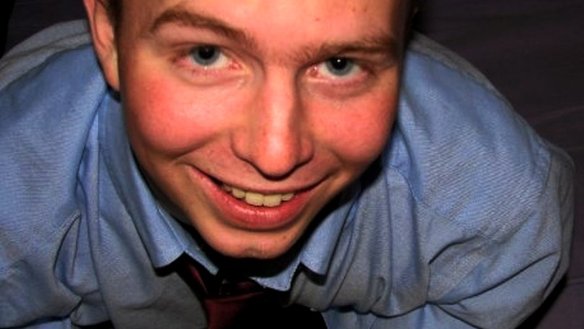Posted March 5, 2013
WE KNOW ABOUT heroes of social justice and liberation who come “organically“ from the movements: Nelson Mandela. Rosa Parks, Ella Baker and Martin Luther King, Jr. Eugene V. Debs. Chico Mendes. Bernadette Devlin McAliskey. Heroes of grassroots resistance in Palestine, in the Philippines, in Central America and so many other struggles, those with names we know and so many more we don’t.
Then there are those heroic individuals who seem to come out of nowhere, perhaps influenced in some ways by the atmosphere of dissent but with no indication that they ever were, or intended to be, part of an organized movement let alone symbols of it. That’s who Bradley Manning seems to be, pretty much an ordinary guy with ordinary human qualities and problems — who didn’t check his moral compass at the door when he signed up for the military.

Maybe he was indirectly influenced by the example decades earlier of Daniel Ellsberg, who revealed the “Pentagon Papers” with their revelations of the lying fraud behind the United States’ war in Vietnam. Maybe not. In any case, you can and should read the statement of this hero here.
Because of the political and judicial climate at the time of Daniel Ellsberg’s revelations, Richard Nixon’s attempt to destroy his life didn’t succeed. It’s different in the age of George W. Bush and Barack Obama. As Chris Hedges writes, “Manning will surely pay with many years – perhaps his entire life – in prison. But we too will pay. The war against Bradley Manning is a war against us all.”
Hedges is right, of course. Self-interest as well as basic morality and human decency demand that the antiwar and civil liberties movements stand in solidarity with Bradley Manning as well as with Wikileaks, which published his revelations after mainstream corporate newspapers’ cowardly refusal to be the primary recipients.
In its bloodlust, the government – that’s the Obama administration – won’t accept Manning’s statement of responsibility exposing him to 20 years prison, but will press the ridiculous charges of “aiding the enemy,” “espionage” and “computer crimes.” Manning had no contact with “the enemy,” didn’t spy for anyone and hacked into no government computers. Doesn’t matter.
For background on the case, you can read Hedges’ Truthdig article, and follow developments and offer support through Manning’s defense committee website. There’s another comparison worth thinking about: What made Bradley Manning behave differently from the flyboys he saw on the video in their Apache helicopter, gunning down civilians on a Baghdad street and then returning to incinerate a van (including kids) who were trying to assist the wounded victims?
Those guys weren’t necessarily cynical psychopaths when they joined the military. Nor were those who have raided village homes in Afghanistan, shot the men, raped teenage girls and burned the bodies to hide the evidence. We don’t know when and why they shed their moral compasses, or how many of them will return to become violent abusers or PTSD-afflicted human time bombs. The military and the government have every reason to keep us from finding out any time soon. The truth would expose too much about what these wars have done to our society as well as those we’ve pulverized with our smart weapons and stupid leaders.
Decades from now when it’s too late, there will be studies that provide considerable detail like Nick Turse’s new book Kill Anything That Moves: The Real American War in Vietnam. Right now, we need the heroism of Bradley Manning and more like him to lift the information blackout. That’s why the system is determined to crush him and anyone else who might follow his example of ordinary, and extraordinary, heroism.
This statement was written for the Solidarity Political Committee by David Finkel. The author is not to be confused with the Washington Post reporter (referenced in Bradley Manning’s statement) who embedded with U.S. troops in Afghanistan.

Comments
One response to “The Heroism of Bradley Manning”
I’mo not a huge fan of the trend of presuming to “know” manning’s gender identity based on a few comments not directly made to the public, but it does seem that his relationship to gender likely had an influence on his ability to retain a moral compass in the midst of war. Certainly women trans and queer people can be just as brutal as any soldier, but its seems for some people the relationship between masculinity and the war-bred psychopathy can leave them at a certain remove.
I’m horrified by the tragic personal consequences of manning’s heroism.